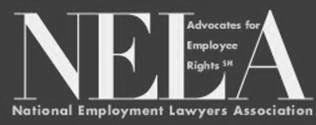WEBSITE SEARCH
PRACTICE AREAS
TESTIMONIALS
HOT TOPICS
Federal Employment
Federal employees enjoy special rights and protections in addition to standard employment laws. These include hiring, compensation, termination, and discrimination matters. Whether you’re employed by the United States Post Office, Federal Bureau of Prisons, or another government agency, Sykes Law is here to be your legal gladiator.
EEOC MATTERS (MEDIATIONS/HEARINGS)
The Equal Employment Opportunity Commission is responsible for enforcing discrimination laws prohibiting discrimination against federal employees. If you wish to file a complaint, you may settle it informally through mediation or through a formal hearing before an administrative judge. You are responsible for understanding both your rights and the required procedures.
MERIT SYSTEM PROTECTION BOARD (MSPB) HEARINGS
The MSPB provides federal employees with an avenue to appeal adverse decisions made by their employing agency or the Office of Personnel Management. Its jurisdiction includes suspensions longer than 14 days, terminations, whistleblower retaliation, and other matters.
DISCIPLINARY AND PERFORMANCE DISPUTES
Federal employees enjoy due process rights that are not available to most private sector employees. If you’re facing suspension, termination or other disciplinary action, you have the right to receive a clear statement of the reasons for the action, and you may challenge the decision with your direct employer, the MSPB, or the OPM.
EMPLOYMENT DISCRIMINATION CLAIMS
While federal employees receive the full protection of federal anti-discrimination laws, the procedures for filing a claim are different than in the private sector. You may be required to attempt to resolve the situation through the EEOC or other administrative bodies before being allowed to file a lawsuit.
SEXUAL HARASSMENT/HOSTILE WORK ENVIRONMENT CLAIMS
Federal employers have a duty to take reasonable steps to prevent sexual harassment and to immediately investigate any reported harassment. When a federal employer allows sexual harassment to continue, the hostile workplace that is created is considered to be a form of discrimination against the targeted employee.
REPRISAL/RETALIATORY HOSTILE WORK ENVIRONMENT
If you are forced to make an EEOC or other discrimination complaint or act as a whistleblower, the law protects you from retaliation. This includes hostile actions taken both by supervisors and non-supervisory employees.
FAILURE TO PROMOTE CLAIMS
Federal promotions are required to be based strictly on merit, and employee evaluations used in promotion decisions must be documented. If you were denied a promotion, you are entitled to learn the reasons for the denial and to appeal any adverse information contained in your personnel file to the MSPB.
CLASS ACTION LAWSUITS
When discrimination or other unfair employment decisions affect a group of employees, a class action complaint may be filed. Like with other federal employment claims, this complaint will often need to be brought to the EEOC or other relevant agency before a lawsuit can be filed.
SECURITY CLEARANCE
Many federal positions require a security clearance, and the denial or revocation of a clearance is grounds for termination or denial of promotion. If you believe your security clearance may be in jeopardy, take immediate action — if you are terminated after losing the clearance, you will be unlikely to win reinstatement to your position.
DISABILITY RETIREMENT
Federal employees who are unable to perform their job assignment due to a permanent disability are often eligible for disability retirement benefits whether or not the disability was cause by an on the job injury. Even if you are physically able to move to another job, you may still be entitled to benefits.
Sykes Law helps federal employees throughout the nation. Contact my Atlanta, Georgia, office to schedule a consultation today.








